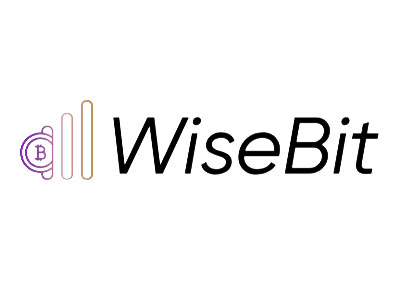
WiseBit AI presents itself as a cutting-edge platform for investors, but an in-depth review reveals serious concerns. The Swiss Financial Market Supervisory Authority (FINMA) has issued a warning against WiseBit AI, citing its absence from Switzerland’s commercial register. Additionally, the platform falsely claims authorization by a fictitious regulatory body, CCA Conduct Authority, to create an illusion of legitimacy. Such fraudulent practices expose investors to significant risks.
In this detailed review, we will examine the issues surrounding WiseBit AI, its regulatory shortcomings, and the warning signs that investors should not ignore.
FINMA Warning Against WiseBit AI
The Swiss Financial Market Supervisory Authority (FINMA) is responsible for regulating and supervising financial institutions in Switzerland. WiseBit AI’s absence from FINMA’s commercial register indicates that it operates outside the legal framework required for offering financial services in the country.
You can review FINMA’s official warning here:
FINMA Warning Against WiseBit AI
This warning serves as a critical alert for investors, emphasizing that WiseBit AI is not authorized to provide financial services in Switzerland.
Major Issues with WiseBit AI
1. Fake Regulatory Claims
WiseBit AI claims to be authorized by the “CCA Conduct Authority,” a non-existent regulatory body. This fabricated claim is a clear attempt to deceive investors into believing the company is legitimate. Such fraudulent practices are common among unregulated brokers aiming to gain unearned trust.
2. Absence from FINMA’s Commercial Register
Operating in Switzerland requires registration with FINMA, ensuring compliance with legal and financial standards. WiseBit AI’s omission from this register is a red flag, signifying its lack of authorization and oversight.
3. Misleading Location Claims
WiseBit AI purports to be based in Switzerland. However, its failure to meet FINMA’s regulatory requirements and its absence from the commercial register contradict these claims. This lack of transparency further erodes the broker’s credibility.
4. Risk of Financial Loss
Without regulation, WiseBit AI operates without accountability, leaving investors vulnerable to financial loss. Funds deposited with such platforms are at significant risk of being misappropriated or stolen, with no recourse for recovery.
What the FINMA Warning Means for Investors
FINMA’s warning is a direct message to potential investors: WiseBit AI is not authorized to operate in Switzerland or provide financial services. This lack of regulatory oversight means:
- No Fund Protection: Client funds are not segregated or insured, increasing the risk of loss.
- No Dispute Resolution: Investors have no legal recourse in case of disputes or fraud.
- No Compliance Oversight: The broker is not subject to anti-money laundering or anti-fraud regulations.
Investors should heed FINMA’s warning and avoid platforms like WiseBit AI, which lack the necessary licenses and oversight to operate legitimately.
Common Fraud Tactics Used by WiseBit AI
1. Fabricated Licensing Bodies
WiseBit AI’s claim of being authorized by the “CCA Conduct Authority” is a classic example of fraudulent brokers creating fake regulatory entities to appear credible. Investors should always verify the legitimacy of such claims with recognized regulatory authorities like FINMA, FCA, or SEC.
2. Generic Website Templates
Fraudulent brokers often use generic website designs, vague language, and fake testimonials to create an illusion of trustworthiness. WiseBit AI appears to employ similar tactics, providing little to no verifiable information about its operations.
3. False Promises of High Returns
Scam platforms frequently lure investors with unrealistic promises of high returns. WiseBit AI uses vague marketing language to attract unsuspecting investors while providing no evidence to back up these claims.
Why Regulatory Oversight Matters
Regulated brokers must adhere to strict guidelines designed to protect investors, including:
- Segregating Client Funds: Ensuring client funds are not used for operational expenses.
- Transparency: Providing detailed information about licensing, leadership, and financial operations.
- Accountability: Offering dispute resolution mechanisms and compensation schemes.
WiseBit AI’s lack of regulatory oversight removes these essential safeguards, leaving investors exposed to significant risks.
Protecting Yourself from Fraudulent Brokers
To avoid falling victim to scams like WiseBit AI, consider the following steps:
Verify Licenses
Always check for regulatory licenses with recognized authorities such as FINMA, FCA, or ASIC.Research the Broker
Look for independent reviews, regulatory warnings, and verified client feedback.Check for Transparency
Legitimate brokers provide clear information about their leadership, operations, and licensing.Avoid Unrealistic Promises
Be wary of brokers that guarantee high returns with little to no risk.
Conclusion: Avoid WiseBit AI
WiseBit AI’s inclusion on FINMA’s warning list is a strong indicator of its illegitimacy. The platform’s use of a fictitious regulatory authority, its lack of FINMA registration, and its misleading claims about being based in Switzerland highlight its fraudulent nature.
Investors are strongly advised to avoid WiseBit AI and consider regulated brokers that offer transparency, legal protection, and compliance with financial regulations. Engaging with unregulated platforms like WiseBit AI exposes investors to financial loss, data theft, and legal complications.
By prioritizing regulated brokers, investors can safeguard their funds and make informed decisions in a secure and transparent environment.
If you have already invested in WiseBit AI and are having trouble withdrawing your funds, it is important to report the platform to your local financial regulatory body or Centered Reviews for a chance of recovery and to warn others..
